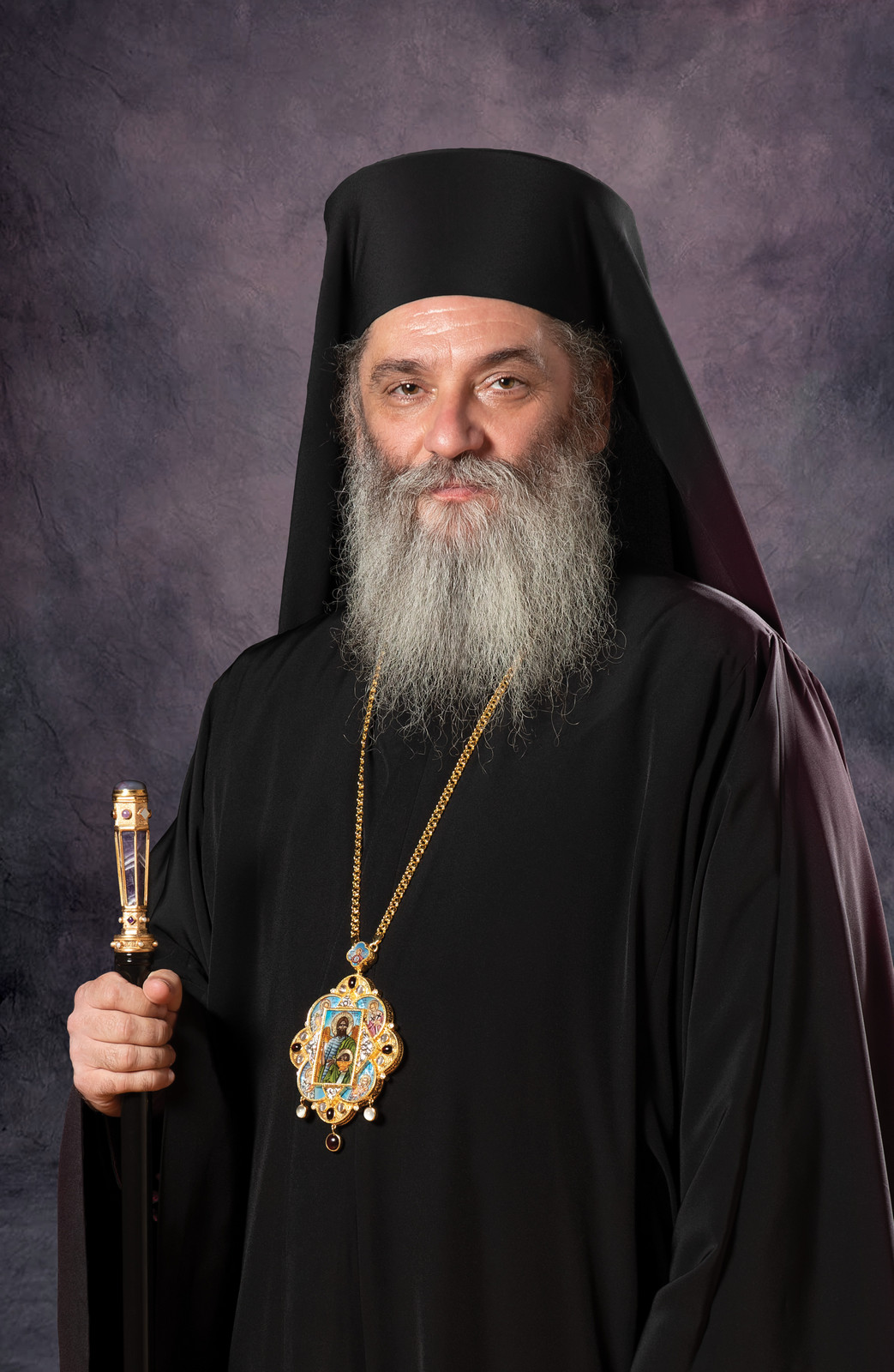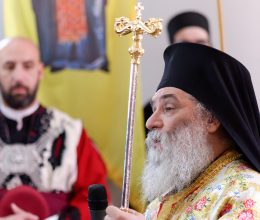(On the occasion of February 21st, International Mother Language Day)

Throughout the course of Macedonian-Bulgarian political relations during the last few years, especially after the signing of the Agreement on Friendship, Good Neighborliness, and Cooperation between the two countries, we as a monastic community came out in support of this process, in the hope that “having been concluded in the spirit of European law,” it would contribute to the establishment and strengthening of brotherly relations between the Macedonian and Bulgarian peoples. In many fields, this is a necessity for both modern European nations, and so we believe that after almost five years, it is necessary and fair for us to once again come forward openly with what we think about how the process has been playing out.
Just as we said when we first expressed our views several years ago, we will once again clearly state that what we will put forth here reflects the position of our entire Brotherhood and that our views are not inspired or encouraged by any political influence and affiliation, because we as a monastic community are entirely committed to service of God and as such we do not serve any political party, movement, ideology, force or power, except for the Almighty God. Consequently, we consider that writing this statement is our duty first of all to both history and the future, and secondly to every citizen of both countries and their political leaders.
Let’s begin with the Agreement’s title. It contains three beautiful words full of Christian spirit: friendship, good neighborliness, and cooperation. But unfortunately, we are obliged to point out that some politicians are not complying with this at all. Some are even abusing Christian principles and manipulating them for their own populist ends. The result of all this is that instead of making progress towards mutual reconciliation and friendship, we have something quite the opposite: our two nations are becoming ever more distant and negative feelings against each other are rising. We would say this trend has gone to even greater lengths than what took place in the period of the Informbiro in 1948. This is a great tragedy.
As a brotherhood, we have always been forthcoming in our statements about the historical and cultural proximity between Macedonia and Bulgaria and our shared historical moments, but also about historical inconsistencies, forgeries, and cover-ups. We are committed to standing on the side of truth and will remain so until the very end. However, it has become obvious that some political and social structures do not recognize elements of a common, shared past. They use these historical elements not as a solid foundation for building a constructive and bright future as they should, but instead, they abuse them to foster mistrust, alienation, and even hatred. None of these things is good for either country. Of course, it is useful and necessary to know history and to have a discussion about it, but we should also expose historiographical falsifications and try to arrive at a mutual understanding. At the same time, to be completely stuck in the past is truly pathological and only reveals how much some people do not know how to deal with the present and are afraid of the future, or do not even care about what is to come at all.
This is exactly what is happening right now with certain political structures. Instead of brotherly love or “friendship, good neighborliness, and cooperation,” their approach to Macedonia is rooted in a misuse of their current power and position. They blackmail our country’s path towards European integration under the pretext that “North Macedonia will not admit in any way that until 1945 it was a Bulgarian country, inhabited by Bulgarian people speaking the Bulgarian language, and that even today a Bulgarian minority is being persecuted in North Macedonia.” We believe that anyone who insists on this claim either does not have sufficient knowledge of how nations and languages are formed, or else they are being taught to be (consciously or otherwise) servants of powerful geopolitical structures, both public and private, that simply do not want and will not allow brotherhood and friendship between different nations to prevail. Their tactic is simple: inflame extreme, groundless, simplistic nationalism in both countries, and in so doing, North Macedonia and Bulgaria will never come to any meaningful agreements.
Reactionary, destructive behavior perpetrated by certain associations and lobbyists is moving the situation in this direction by attempting to force the creation of an unnatural Bulgarian national consciousness in Macedonia. Among other things, this is especially the case with the misuse of Bulgarian passports by some Macedonian citizens. It is already common knowledge that for the most part, Macedonian citizens have been taking out Bulgarian passports mainly for economic reasons. As a Monastery, do not approve of this dishonest behavior and think it is detrimental to Macedonian statehood. At the same time, it is also well known that among those Macedonians who have received Bulgarian passports, the number who truly consider themselves to be Bulgarian is extremely small.
We live in the 21st century, and as such, it is more than anachronistic to think that historical events can be reversed. Historical events come to an end and the resulting reality must be accepted. Thus, we believe that expecting Macedonian citizens to sincerely declare that they have a Bulgarian national consciousness and, as a result, to deny their modern Macedonian identity and the existence of the Macedonian language can only give rise to negative outcomes. Such expectations strongly contribute to the deepening crisis between our two countries and peoples, which is not good for anyone.
However, thank God that there are also many reasonable people in both North Macedonia and Bulgaria with strong intellectual capacities who can understand the historical development of political relations and know that the creation of modern nation-states and ethnic identities is the result of various historical and sociological phenomena which cannot be defined by or traced back to specific dates. The development of various ethnicities and countries is usually a complex social, political, and cultural process that takes place over a long period and cannot be simplified into specific dates and years. Certain national identities were indeed formed earlier and some later. But once a nation and its people’s identity are formed, it is anachronistic and oppressive to deny historical or present realities. As such, the Macedonian nation is hardly an exception in the contemporary understanding of the creation of national identities in the Balkans and more broadly in Eastern Europe. Bearing this in mind, it is unfair to demand that Macedonians justify their existence with exact dates of when the majority Slavic population of North Macedonia, especially its intellectual elite, would have considered themselves part of other ethnic groups, and when they or their successors developed a separate Macedonian identity, as something distinct from other groups in the Balkans. If the historical record is examined impartially, we see that a Macedonian political consciousness first appeared in the 19th century among certain individuals from the modern territory of North Macedonia. This consciousness spread gradually and was also influenced by various social, political, and cultural developments, over time developing into a true national consciousness. We can conclude the same for the Macedonian language, which even at the beginning of this process still stood out as a specific dialect within the general Slavic linguistic continuum.
It is also of great importance and must not be overlooked that a large number of contemporary Macedonians have ancestors who belonged to other nations and ethnicities, and yet they have been integrated into the modern Macedonian nation all the same. These individuals’ past and who their ancestors were does not make them any less Macedonian today. As such, the unnatural creation of the idea of a Bulgarian minority within North Macedonia, supported by various forces, and to have this inserted into our country’s constitution can only lead to the intensification of ethnic tensions all around. On the one hand, this will create conflict between the vast majority of Macedonians, who have a stable Macedonian ethnic identity (including those who are well aware of history and of our shared past with Bulgarians), and the Bulgarian people. At the same time, it will create conflict with the Bulgarian state, as most Macedonians will see this as the result of direct interference and hostile propaganda coming out of Sofia. On top of all this, it is simply a fact that many people do not want to hear such propaganda or allow it in their own country. One of the basic human rights is the right to national self-determination, and of course, we have nothing against this. However, what must be clear is that if a Macedonian citizen is educated about history and does not agree with certain parts of the official state narrative about Macedonian identity, this does not mean that such a person is automatically a contemporary Bulgarian, Serbian, or any other ethnic group. We are well aware that various associations and special interest groups are active in North Macedonia trying to recruit followers and impose a contemporary Bulgarian or Serbian national identity on Macedonians. While often presenting themselves as being victims of supposed oppressive government policies, the vast majority of Macedonian citizens see these groups as being regressive and consider that their tactics are inappropriate, and that they are supported by foreign groups whose main purpose is sowing discord.
In writing this, we do not intend to insult or belittle anyone, but to give our own view of things, that friendship and fraternity between the peoples of the Balkans might prevail. At the same time, we absolutely do not consider ourselves accountable to so-called “internet patriots,” with their vulgar calls for Macedonian national consciousness, nor their appeals to patriotism, love for the Motherland, historical perspectives, and so on. We are an open and transparent Monastery and everything we have to say regarding these issues is published on our official website. The literate can read and the intelligent can understand. We would also add the fact (although this is a private matter for each individual and it need not be published for all to know) that, unlike many “virtual Macedonian patriots,” no member of our brotherhood has dual Bulgarian citizenship or a passport from any other country. On the contrary! We are all Macedonian citizens and strive for the unity of the Macedonian state. Additionally, for those who are curious but also for certain individuals who have been “concerned,” we would like to clarify that in the last census, both myself and all the monks and nuns in our community made use of our legal right to declare our ethnicity as Macedonians. This will be easily proven when the census results become publicly available. This should be sufficient to silence various negative campaigns against our community (all while knowing that these campaigns are nothing more than malicious populist propaganda). For all of us in our Brotherhood, the Macedonian nation, people, and language are a sacred heritage that we have been given by our ancestors, and as such we do not consider it appropriate for us to simply write about our love and efforts for the welfare of our people; rather we should let our deeds speak to that. After all, every Christian must love their own people, to love all those around them, and to pray for them, and work for their salvation. We must do this without hating, belittling, or insulting people who are different from us. “If anyone does not provide for his own, especially for those of his household, he has denied the faith and is worse than an unbeliever” (1 Timothy 5:8).
Sincerely,
His Grace Bishop Partenij of Antania,
Abbot of Bigorski Monastery















